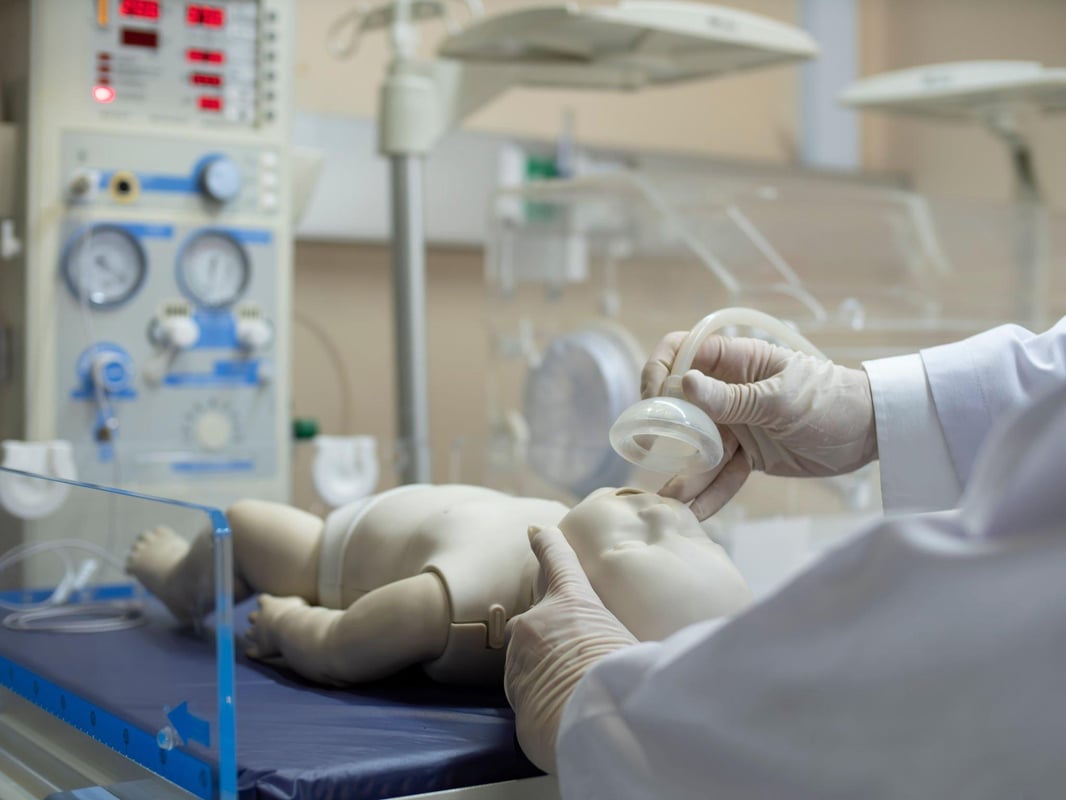
Financial aid (may be available)

Financial aid (may be available)

Financial aid (may be available)

Financial aid (may be available)
$394.36 total
$295 total
$276 total
$2,075 total
$299.36 total
$365 total
$150 total
No cost info
$285 total
No cost info
Pursuing a career in healthcare can be an exciting journey filled with opportunities to learn, grow, and make a significant impact on people's lives. One of the many paths you can take in this field is becoming certified in Pediatric Advanced Life Support (PALS). This blog post aims to provide you with a comprehensive guide on how to find PALS classes in Baltimore, what to expect from the training, the certification process, and how to navigate your career after certification.

Pediatric Advanced Life Support, or PALS, is a set of clinical interventions designed for the urgent treatment of children and infants suffering from life-threatening conditions such as cardiac arrest, shock, and respiratory failure. Healthcare professionals who work in critical care areas, such as emergency rooms or intensive care units, often require PALS certification.
Before enrolling in a PALS class, there are a few prerequisites you should be aware of. The American Heart Association suggests that participants have the following:
Basic Life Support (BLS) Certification: This course provides the fundamental skills needed in any life-saving situation.
A solid understanding of ECG Rhythm Interpretation: PALS heavily involves the use of ECGs, so being able to interpret them is crucial.
Knowledge of anatomy and physiology: Familiarity with the human body and its functions is essential for understanding the techniques used in PALS.
When looking for a PALS class, there are several factors you should consider:
Accreditation: Ensure the course is certified by a reputable organization such as the American Heart Association.
Course Content: The class should cover all aspects of Pediatric Advanced Life Support, including CPR, AED use, and emergency cardiovascular care.
Qualified Instructors: The teachers should be experienced healthcare professionals with a background in emergency care.
The PALS course is typically an intensive two-day program that involves both theoretical learning and practical skill application. Here's what you can generally expect:
Theory Lessons: These cover the PALS treatment algorithms, effective team dynamics, and pediatric assessment.
Hands-on Practice: You'll learn and practice vital skills like high-quality CPR, effective respiratory management, and defibrillation.
Simulations: These mock emergency situations help you apply your knowledge and skills in a controlled environment.
After completing the course, you'll undergo an evaluation that typically involves both a written exam and a skills test. Upon successful completion, you'll receive a PALS Provider Course Completion Card, which is valid for two years.
Once you've earned your PALS certification, you can look for job opportunities in various healthcare settings like hospitals, clinics, and emergency medical services. Roles such as emergency nurses, pediatric nurses, respiratory therapists, and paramedics often require PALS certification. Check out local job listings or visit healthcare job boards for opportunities in Baltimore.
After obtaining your PALS certification, you might consider furthering your skills with other relevant courses. For example:
Advanced Cardiovascular Life Support (ACLS): This course builds on the basics of PALS and includes more advanced techniques.
Neonatal Resuscitation Program (NRP): This program focuses on the resuscitation of newborn infants.
Emergency Pediatric Care (EPC): This course provides comprehensive training on the care and treatment of critically ill or injured children.
In today's digital age, technology plays a significant role in PALS training. Simulation-based training allows students to practice their skills in a controlled environment, making them better prepared for real-life emergencies. Also, online platforms offer flexible learning options, making it easier for busy professionals to earn their certification.
Continuous learning is key in the healthcare field. Medical protocols and techniques can change over time, and staying current ensures you can provide the best possible care. Regular recertification and ongoing professional development are crucial for anyone with PALS certification.
Participating in professional associations and networking can provide valuable opportunities for career growth. These platforms offer resources for learning, opportunities for professional development, and a community of peers for support and collaboration.
Becoming PALS certified is a rewarding path that can open the door to numerous opportunities in the healthcare sector. It's a robust program that equips you with the skills and knowledge to handle pediatric emergencies effectively. Remember to look for accredited programs, commit to continuous learning, and make the most of networking opportunities. With the right training and dedication, you'll be well on your way to making a difference in the lives of children in critical situations.
For more information on related health care careers in Maryland, check out these articles:
Dreambound has put together numerous guides to help you navigate the certification process in this field, tailored for various cities. For insights into the process or requirements in other states, see some of our additional guides below.
Thinking about a potential career transition? Dreambound offers detailed guides to help you with making an informed decision. Dive in below:
Dreambound's platform allows prospective students to find the right educational program for them through searching, filtering, and connecting with our extensive selection of career & technical education partners.
Dreambound has over 70 programs across healthcare, technology, business, and industrial trades. This includes programs such as Medical Billing, Cybersecurity, and welding.
Some of our schools offer financial aid for those who qualify. Many others offer payment plans, where you can pay the cost of class over time.
Yes, Dreambound offers many online programs. On Dreambound's search, you can filter by online, in-person, and hybrid (part online, part in-person).
Dreambound is completely free for you to use! We are supported by schools and organizations who pay to advertise on our website, so we can offer all of our career resources for free.